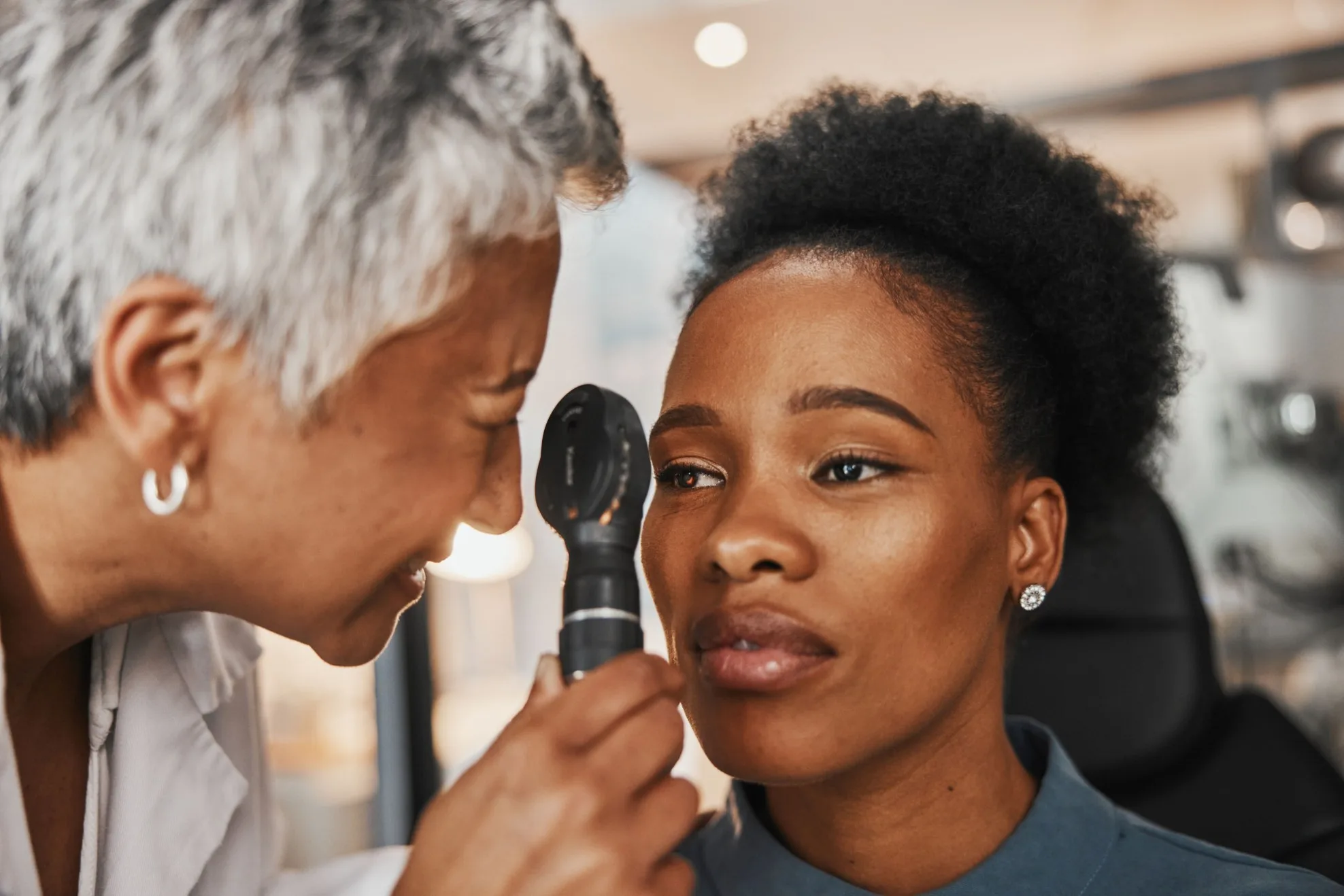Have you ever thought about the health of your eyes beyond getting a routine check-up for your glasses or contact lenses? While we often take our vision for granted, conditions like glaucoma can silently creep up on us, leading to irreversible damage if left unchecked.
Glaucoma is a set of eye diseases that cause damage to the optic nerve, usually due to excessive eye pressure. It’s dubbed the silent thief of sight because it often progresses without causing visible symptoms until considerable vision loss occurs. Sadly, when symptoms appear, the damage is usually irreparable.
The Five Stages Of Glaucoma and Vision Loss
The first stage of glaucoma often begins with elevated eye pressure, also known as intraocular pressure (IOP). However, not everyone with elevated IOP develops glaucoma, and conversely, some people with normal IOP can still develop the condition.
This makes regular eye exams crucial for early detection.
During these examinations, your eye care specialist will check your eye pressure, inspect your optic nerve, test your peripheral vision, and measure the thickness of your cornea. These tests identify glaucoma in its early stages, allowing therapy to avoid future visual loss.
Stage 1: Pre-Glaucoma
In the pre-glaucoma stage, individuals may have elevated eye pressure and optic nerve changes, but they don’t yet have any noticeable vision loss or other symptoms. This stage underscores the importance of regular eye exams, especially for those at higher risk, such as individuals with a family history of glaucoma or those over 60 years old.
Stage 2: Early-Stage Glaucoma
As glaucoma progresses, it may start to affect peripheral vision. In the early stages, individuals may not notice any changes in their vision because central vision remains intact. However, subtle blind spots may begin to develop in the outer edges of the visual field.
These blind spots are often missed in daily activities but can be detected through specialised tests during eye exams.
Stage 3: Moderate Glaucoma
By the time glaucoma reaches the moderate stage, visual impairment becomes more noticeable. Individuals may experience further loss of peripheral vision and challenging activities like driving and navigating crowded spaces.
At this stage, it’s crucial to follow the treatment plan prescribed by your eye care professional to slow down the progression of the disease and preserve the remaining vision.
Stage 4: Advanced Glaucoma
In advanced glaucoma, peripheral vision loss becomes severe, leading to tunnel vision, where only a small central area of vision remains. Everyday tasks become increasingly complex, and individuals may require assistance to perform activities safely. Continuing treatment can help prevent further vision loss.
Stage 5: End-Stage Glaucoma
End-stage glaucoma represents the most severe form of the disease, where peripheral vision is almost completely lost, leaving only a tiny central area of vision. At this stage, individuals may be considered legally blind. While treatment can’t reverse existing damage, it can help manage symptoms and prevent further deterioration.
Preventing Advanced Complications
While glaucoma can’t be cured, early detection and treatment can significantly slow its progression and reduce the risk of advanced complications and vision loss. Depending on the severity of the problem, treatment options might include prescription eye drops, oral medicines, laser therapy, or surgery.
Beyond medical interventions, adopting a healthy lifestyle can also play a role in managing glaucoma. Maintaining a balanced diet, exercising regularly, avoiding smoking, and protecting your eyes from injury can all contribute to overall eye health.
Remember, your eyesight is precious, and early detection of glaucoma can prevent irreversible damage.
About the author
This article was written by Murray Hewllett, CEO of Affinity Health is South Africa’s leading health coverage provider, offering you a range of options at affordable rates, including access to the widest national provider network. His full biography is listed below.
References
- https://my.clevelandclinic.org/health/body/22261-optic-nerve
- https://www.reviewofophthalmology.com/article/glaucoma-staging-and-progression-risk-factors
- https://my.clevelandclinic.org/health/articles/25039-peripheral vision#:~:text=Peripheral%20vision%20refers%20to%20what,directly%20in%20front%20of%20you
- https://www.medicalnewstoday.com/articles/tunnel-vision
- https://abcnews.go.com/Health/EyeHealthGlaucomaSymptoms/end-stage-glaucoma-blindness-occur/story?id=8409207
- https://www.cdc.gov/visionhealth/resources/features/glaucoma-awareness.html#:~:text=There%20is%20no%20cure%20(yet,your%20vision%20health%20is%20key.
Read about how to help prevent glaucoma here:



![women [longevity live]](https://longevitylive.com/wp-content/uploads/2020/01/photo-of-women-walking-down-the-street-1116984-100x100.jpg)










